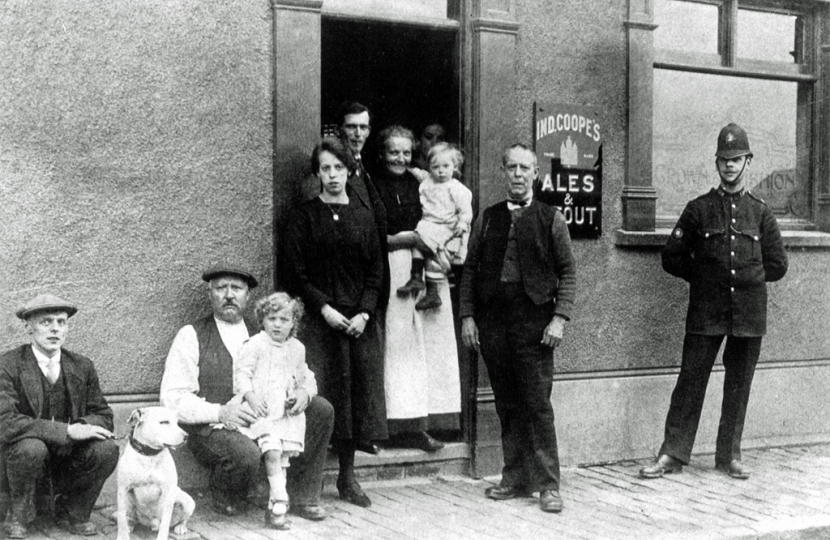
In May, Whitwick Historical Group was pleased to welcome Rupert Matthews to the Old Station. Mr Matthews is the Police and Crime Commissioner for Leicester, Leicestershire and Rutland. He is a keen historian and a published author of history books; he showed interest in both our collections and our activities. During his visit, Mr Matthews asked if we had any details regarding policing in Whitwick. As we had no dedicated files to show him, we determined to rectify this and enthusiastically set about researching the topic. We are delighted to share some of the stories we have uncovered so far.
The Leicestershire Constabulary was set up under the County Police Act of 1839. At first police constables were expected to be young men, over five foot seven inches tall and be able to read and write. They worked seven days a week and spent their time “walking the beat” in order to deter criminals, investigate crimes and arrest suspects. Newspaper reports of cases brought before local magistrates give information about typical offences that police constables in Whitwick had to deal with in the decades up to 1920: the use of bad language; being drunk and disorderly; sleeping rough; theft; driving a horse and cart or riding a bicycle without a light; gaming and gambling; playing football on the highway and selling loaves of bread that were underweight.
However, one of our early constables, PC Thomas Challoner, was involved in two exceptional cases. The first was on a Saturday night in October 1861 when, with other officers, he was called to deal with a “great disturbance” at the Wagon and Horses pub. They arrived to find over 200 people in and around the pub and English and Irish colliers fighting each other. Stones were thrown and windows broken. Two constables were struck with stones. Eventually the people were persuaded to go home but the trouble restarted during the following afternoon. PC Challoner later declared that over 100 people had assembled in the part of the village where many Irish people lived, “and so great was the violence that ….if he had attempted to apprehend any one his life would have been endangered.” It took some time to clear the streets. Subsequently, six ringleaders were charged with riotous behaviour.
Less than two years later, PC Challoner was called to deal with another affray, this time at The Reformatory at Mt St Bernard Abbey. Five of the older boys refused to come out of their dormitory and armed themselves with iron bars which had been part of their bedsteads. When PC Challoner went into the dormitory, the youths rushed at him and began to strike him with the iron bars. One of the blows to the right side of his head stunned him. As soon as his wound was dressed and reinforcements had arrived, he went back to the dormitory. The youths were waiting at the top of the stairs. As the constables mounted the steps, the lads emptied the contents of their “night commode” over them! Later that year, PC Challoner was paid a gratuity of £3 for “meritorious conduct at the Whitwick Reformatory, when he was violently assaulted in the execution of his duty”. By 1867, he was in Market Harborough and Sergeant Fardell moved from Coalville to become Whitwick’s policeman.
This month’s photograph from the WHG archive and dated c 1918 shows another village policeman, PC Percy Jelley who was stationed in Whitwick for ten years. The group of people are standing outside the former Crown and Cushion pub in Silver Street. A contemporary of PC Jelley was PC Leonard Henson who was stationed at New Swannington. PC Henson had served for seven years as a private in the Coldstream Guards before becoming a constable. At the outbreak of WW1, he rejoined the army and was soon in France. He was wounded on 23rd September 1914. He died in Claridge’s Hotel in Paris two days later and is buried in the Plantin Cemetery. His name is on the Whitwick War Memorial.
The volunteers at WHG have been fascinated by these stories that have been recently revealed. We hope to disclose many more and will welcome contact from anyone with information about or photographs of Whitwick police constables. Can you help with our enquiries?
Reproduced with kind permission of the Whitwick Historical Group - Whitwick Historical Group – All about Whitwick's history

